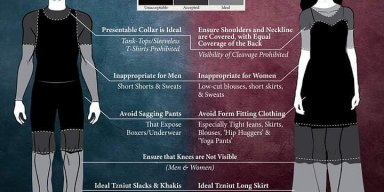Blog
» Categories
» Passover
After the eating of the Matzah, we now turn to the MARROR; the bitter herb. As I have indicated previously, this must be either lettuce, or a related green leafy herb such as endive. In my opinion, there is no basis for the use of horseradish,...
Comments
Likes
The table is set, and we are ready to eat. The sources simply say "one eats whatever one wishes, and drinks whatever one wishes". There are no halachic requirements for the meal, nor even universally accepted customs. The only one that comes close...
Comments
Likes
The meal has ended. It is time for TZAFUN, "the hidden". Near the beginning of the seder, we broke a matzah into two, and hid a piece away for the Afikoman. Afikoman is a Greek word, meaning "we go out"; that is essentially "dessert". But it is no...
Comments
Likes
The meal has ended, with the Afikoman as its climax. The third cup of wine is poured. In most communities, each participant then washes his or her fingers (the Vilna Gaon requires washing of the whole hands), in preparation for BARECH, the...
Comments
Likes
Our fourth cup is now filled. We are to recite over it the HALLEL. There are actually two Hallels. There is the familiar "Hallel Mitzrayim" (Hallel of Egypt; Psalms 113-118) so called because a large portion of it gives thanks for the Exodus. This...
Comments
Likes
One of the mitzvot associated with Passover is the Omer. We read in Leviticua 23:15, that the day after "the Sabbath" we are to bring a "wave offering" to the Temple, and (in Deuteronomy 16:9) we are commanded to count fifty days until the holiday...
Comments
Likes
It is vital to remember that Jewish history has been filled with numerous tragedies. This is especially true of Ashkenazic Jewish history. Nearly every country in Europe expelled the Jews from time to time. In pre-Modern times, the greatest...
Comments
Likes
As I have noted n the past, the imagery of Kaballah is often of a sexual nature. G-d is the male figure, the bestower, while Man, the Jewish People, the Holy Shechinah (Divine Presence; Indwelling) are the female bestowee. In the menstrual law...
Comments
Likes
The Torah, rather mysteriously, commands the Seventh Day of Passover to be observed as "Full Holiday", roughly the same as Shabbat, with the exception of food preparation and carrying outside where there is no eruv. By Rabbinic Law, one day...
Comments
Likes
The Eighth Day of Passover has no special rules. It might even seem anticlimactic. But Jewish tradition, and especially Hassidic Tradition, has made it into a climax. As I pointed out in one of my posts about the Seder, although the immediate...
Comments
Likes











